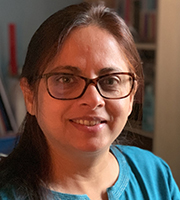 Pallavi Anand
Pallavi AnandI arrived in the UK, leaving my home country for the first time, to do a PhD. It was a culture and climate shock but also pretty exciting times to be studying at a diverse University town (almost felt like living in a bubble). My second move, in yet another foreign land, when I experienced what it feels like to be an immigrant. However, my passion for science and providing opportunities to the next generation have helped me keep going, particularly when I am undervalued. I have come this far by taking opportunities and persevering with overcoming barriers. I have learned a lot from my wide educational experiences in life: I have attended a small village school in India where I had to bring my own sack for sitting as well as having been at a University where someone came to clean my room and make my bed! With these diverse set of life experiences, I hope to connect with people and contribute to EAG’s Diversity, Equity, and Inclusion Committee.
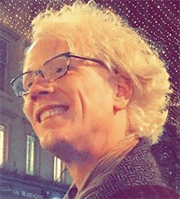 Pieter Bots
Pieter BotsI am a gender non-conforming/queer gay geochemist and environmental mineralogist, originally from the Netherlands, but since 2008 based in the UK and since 2016 in Scotland. Throughout my career at multiple institutes I have been involved in Diversity, Equity and Inclusion committees. Also, at these institutes I have always been open about being gay, and subsequently I have experienced (and noticed) the best and the worst in dealing with (and rewarding) diverse staff and students. I found it specifically unsettling that some of the worst behaviour has come from senior academics who “shout” about their activities to increase diversity within academia. This has ranged from proposing only male academics for advisory boards, to telling (me) to just hide being gay and gender non-conforming when visiting the UAE. Since, by being open about my struggles to others, I have also become much more aware of the disadvantages experienced by other minoritised communities. Because of my own experiences and the stories others have told me, I have become more invigorated to actually achieve meaningful and lasting change within academia (and the geosciences specifically), not just with respect to sexuality and gender identity, but also as an (active) ally to ethic/racial minorities. I hope by being an active member of the EAG DEI Committee I can help to achieve this goal.
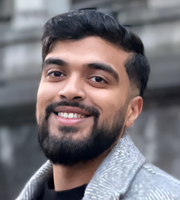 Qasid Ahmad
Qasid AhmadAs the child of immigrants/refugees who fled Pakistan for Germany due to religious persecution as Ahmadi Muslims, I've intimately experienced the complexities of adapting to a new culture while being part of a minority. My parents, especially, faced immense hurdles in establishing themselves in an unfamiliar land, lacking many of the opportunities I later had access to. Growing up as a Muslim in Germany, I've navigated the unique intersection of my faith and cultural identity, which has profoundly shaped my worldview.
As a Muslim, I hold a deep conviction in the principles of mutual respect across all lines of ethnicity, gender, and faith, and in the harmony between science and faith. In the realm of geosciences, I have observed a noticeable gap in representation for academics who practice a certain faith, particularly Muslim scholars. This lack of representation is a concern I am eager to tackle in my capacity as a DEI committee member at the EAG. My goal is to bridge this divide, ensuring that the geoscience community is as diverse in faith and belief as it is in other aspects, fostering an environment where all perspectives are valued and contribute to the richness of scientific discourse.
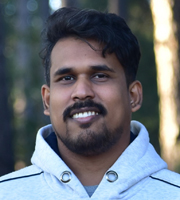 Sudhir Bhadra
Sudhir BhadraI am a first-generation paleoclimatologist from India, currently working as a postdoctoral fellow at the Indian Institute of Science. My primary research focuses on the reconstruction of Indian monsoon-induced paleoceanographic changes in the Indian Ocean, utilizing foraminiferal taxonomy, as well as trace element and stable isotope ratios in foraminifera shells.
My journey to this point has been shaped by a challenging childhood. I hail from a poor family in a rural village without proper roads or electricity during my school years. I owe my academic achievements to the individuals who recognized my potential and offered their support. Despite my difficult background, I also acknowledge my privilege as a cisgender brown male. Having attended international conferences made me realize the importance of inclusivity and validation for budding scientists from underrepresented groups. These experiences give me enough understanding to empathize with individuals from underrepresented backgrounds, where a lack of opportunities and resources can pose a significant handicap. Motivated by my experiences, I strive to work towards an inclusive environment in geochemistry by being a just voice for the underrepresented ECRs and hope my contribution can make a positive difference, albeit a small one, in increasing accessibility.
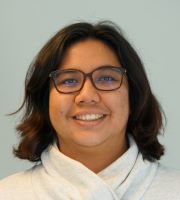 Sri Budhi Utami
Sri Budhi UtamiI am an adult Third Culture Kid (aTCK), which means I spend most of my life living in countries outside of my own passport country, Indonesia. Having lived in different cultures, I was exposed to different perspectives that have taught me valuable lessons and enriched my life. I have also experienced how inequities within the Earth Sciences communities affect women, minority, and international scientists. I believe together we can work towards making geochemistry a more welcoming and equitable field.
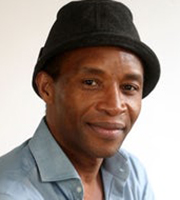 Ernest Chi Fru
Ernest Chi FruErnest was born in Cameroon. He obtained a PhD in Geomicrobiology from Gothenburg University, Sweden. Ernest was a Marie Curie fellow and a recipient of an ERC starting grant from the European Research Council. Studying and working in 8 academic institutions spread across Africa, Europe and North America, has exposed Ernest to diverse cultures and societies. He currently is a senior lecturer at the School of Earth and Environmental Sciences, Cardiff University, where he is the director of Postgraduate Research Studies. Being a first generation immigrant has afforded Ernest a unique perspective into life and living in an all-black society and the challenges of being a minority person in a western setting. He notes that discrimination exists in all societies. In Africa, tribalism and linguistic, sexual orientation and gender discrimination are rife. In western societies, chronic and systemic racism and religious discrimination are the most prominent, while gender and sexual orientation bias remain a major problem. Ernest’s experience with discrimination contextualised to these different societies and cultures is a major force for joining the EAG-DEI Committee. He seeks to lift up the voices of minority people at the fringes of society by focusing light on the biases that hinder exploration of their ingenuity, talent and potential to contribute towards humanity’s collective progress.
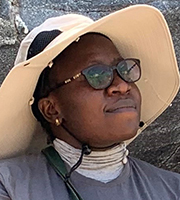 Mary Immaculate Neh Fru
Mary Immaculate Neh FruI love geosciences and I am so passionate about bringing more women into geosciences. I advocate for breaking the bias and allowing everyone to have equal opportunities. An inclusive science for all nations.
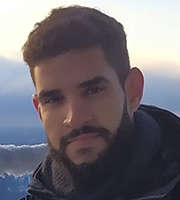 Jonatan Romero Matos
Jonatan Romero Matos
Geologist and geosciences enthusiast.
I’ve recently jumped into my predoc studies in environmental geochemistry and mineralogy, based on acid mine drainage pollution of the historically mined Iberian Pyrite Belt, located in the southwest of Spain. My purpose in the DEI committee is trying to bring fresh ideas from the perspective of someone relatively new to academia and at the same time be trained in diversity, equity and inclusion issues.
I have the privilege of participating and collaborating in a research group with a very pleasant working environment for everyone involved. I would like to bring this feeling to other members of diverse research groups, where ethnic, genre and social barriers don’t confront each other, making the workplace a safe place for everyone.
 Carla Tiraboschi
Carla TiraboschiI am an experimental petrologist from Italy. Currently, I am based at the University of Münster in Germany, where I have been working since 2018. My research interests include investigating volatile-bearing systems and the mass transfer operated by fluids and melts under high-pressure and high-temperature conditions.
As a white, cisgender woman, I acknowledge the privileges that have helped me throughout my academic journey, including access to free higher education and the opportunity to study in different European countries. However, I am also aware of some of the struggles that women face in academia, such as gender bias and the challenge of balancing family and work responsibilities.
In an effort to contribute to creating a more diverse, equal, and inclusive academic environment, I have joined the DEI committee. I am passionate about promoting these values and confident that my service on the committee can make a positive impact.
 Christophe Thomazo
Christophe ThomazoI am an early Earth biogeochemist studying the establishment of biological cycles and microbe-mineral interactions, in France, at the University of Burgundy. I mainly grew up in the Parisian suburbs in a working-class quarter with great cultural, religious and origins diversity. There were literally all continents and a dozen of nationalities in this typical French immigration neighborhood of the 80s, with doors most often wide open! I am convinced that empathy, kindness and respect are the fundamental foundations of any society and in particular of a society that delivers knowledge. My experiences convince me that diversity in opinion, thinking and heritage can also foster the best success. Since, prejudices and discrimination still die hard, I hope to be able to contribute the DEI committee effort on these issues and particularly make sure that the youngest feel comfortable and safe in navigating the community and have as much as possible opportunities in establishing contacts to promote their research and future career. I also experience the challenges of being on soft money and repeatedly abroad to ensure family harmony and feel concern about the difficulty in balancing family/work time especially for women in science.


